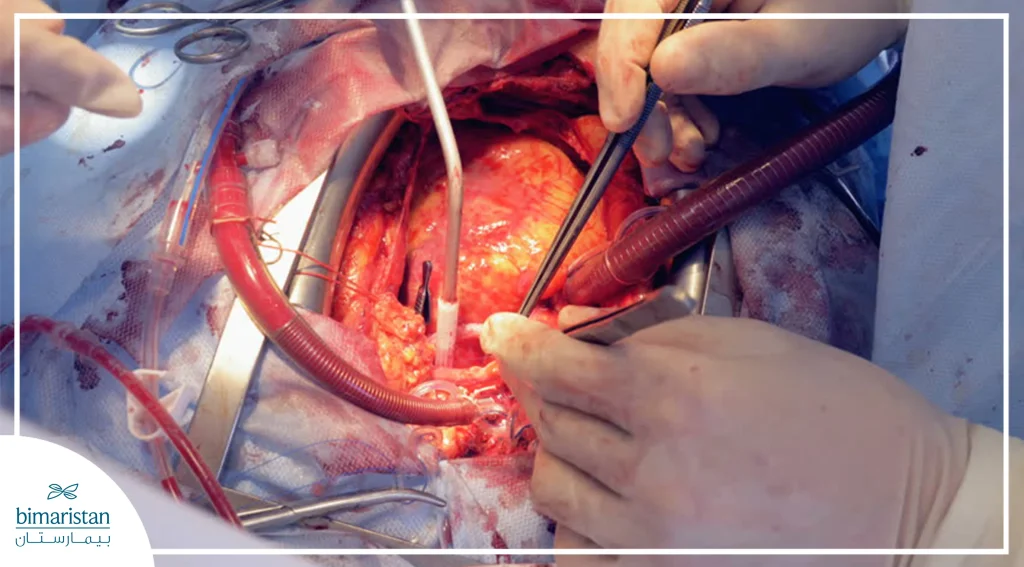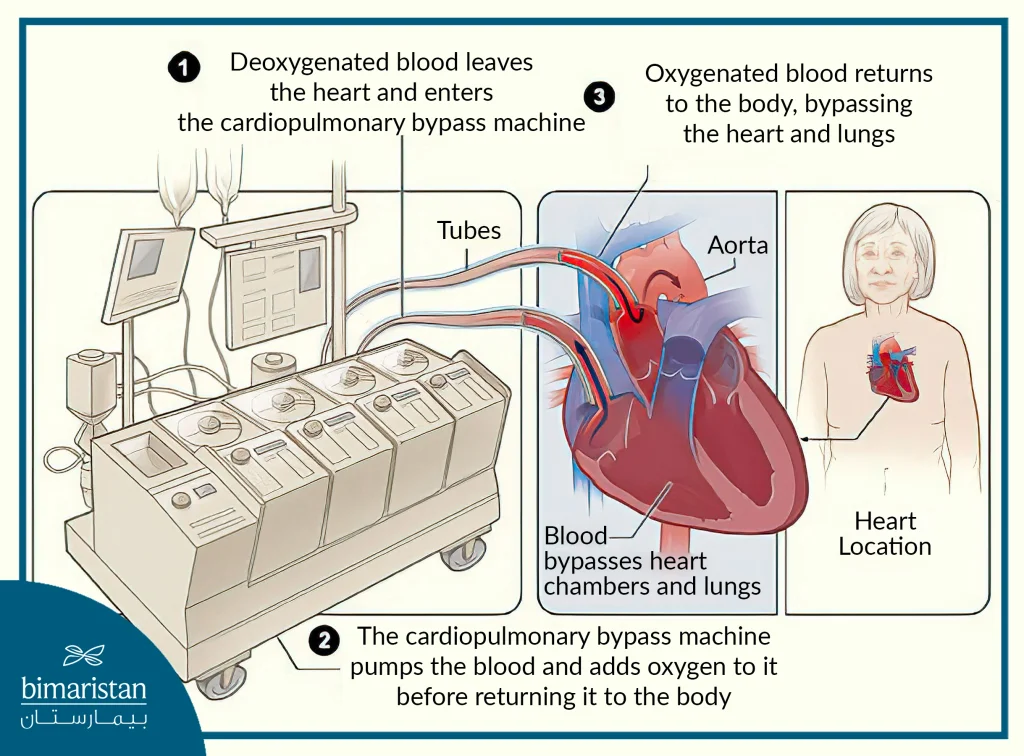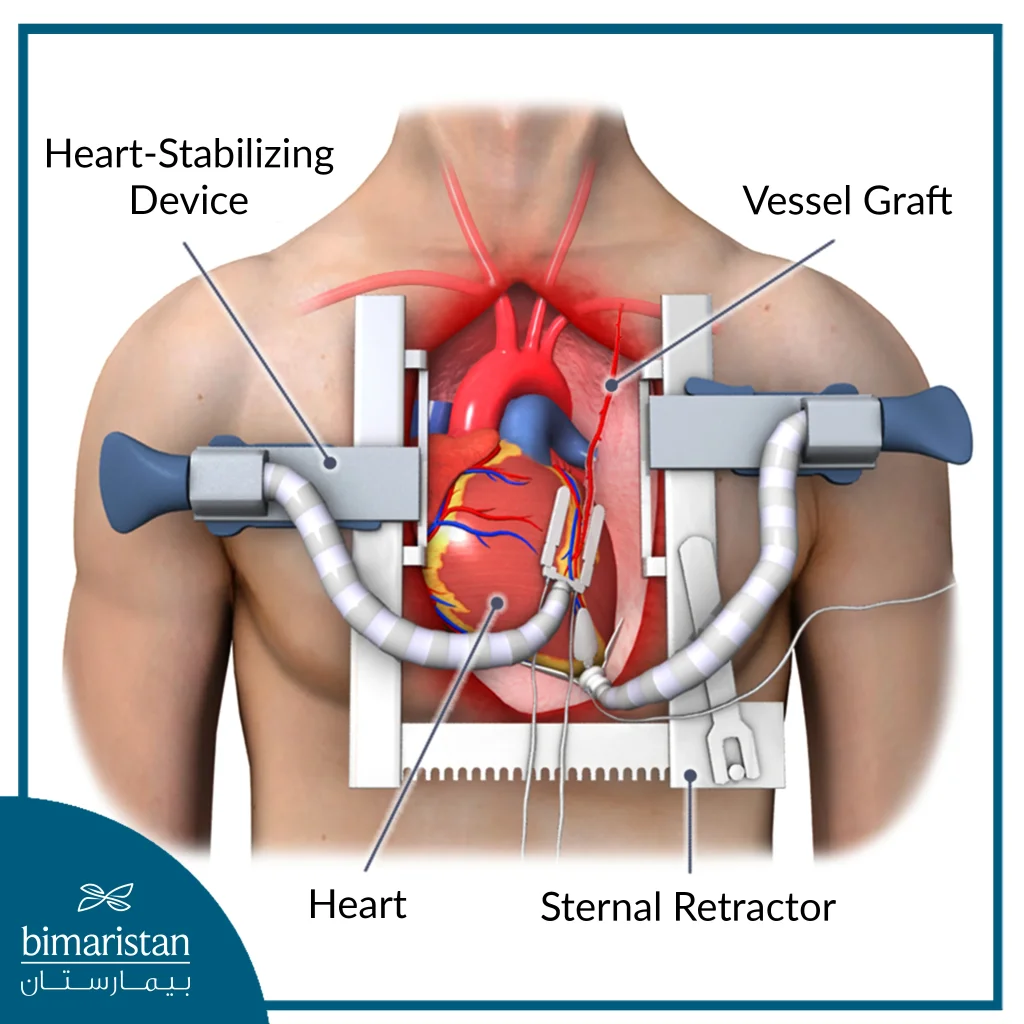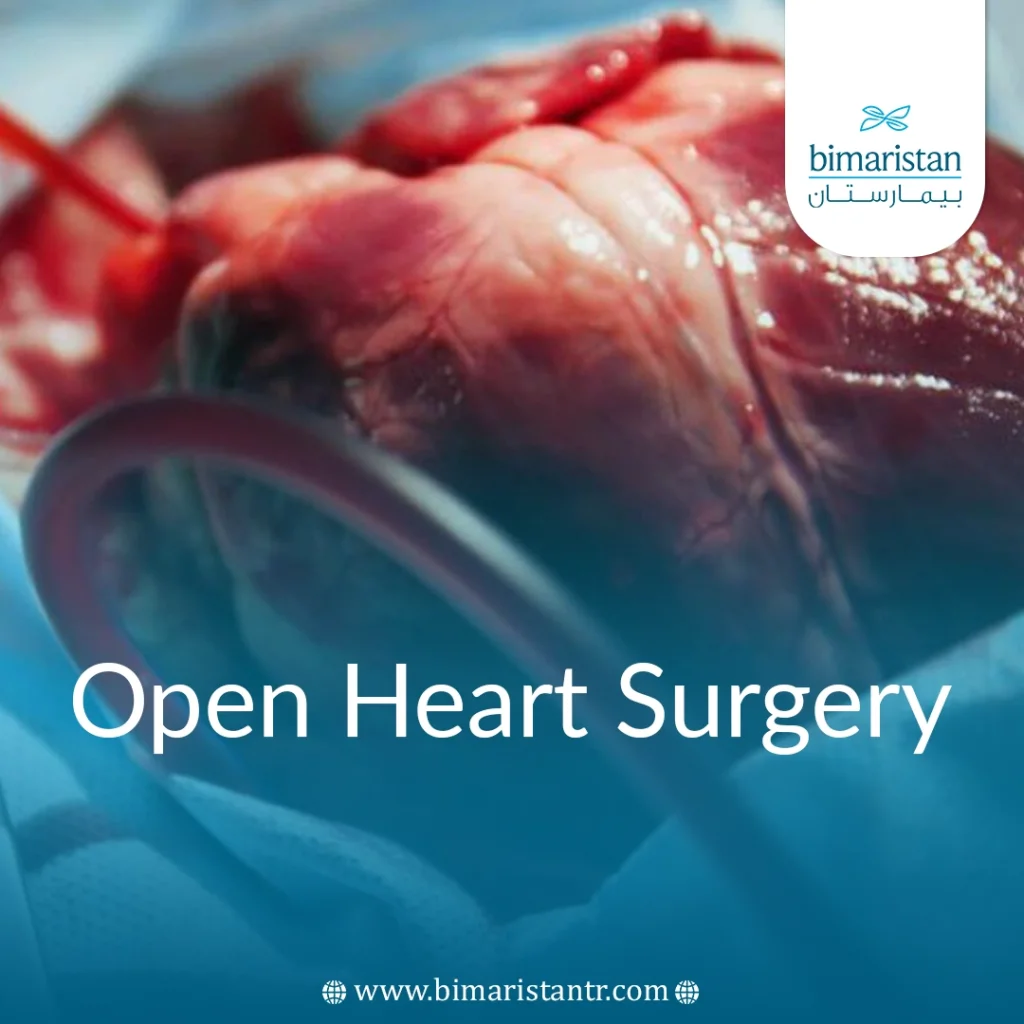Open heart surgery is one of the leading operations in medicine to correct an error or damage to the heart or its arteries. You can now undergo this operation in Turkey with the most skilled specialist doctors.

Overview of open heart surgery
Open heart surgery is performed on the heart muscles, valves, arteries, or arteries connected to the heart.
The term “open heart surgery” means that the patient is placed on a machine called a heart-lung bypass machine during the procedure.
The heart is stopped, and the patient is connected to this machine, which acts as the heart and lungs to pump blood, supply it with oxygen, and purify it from carbon dioxide for the duration of the surgery.
Photo
Open heart surgery is very common and has been performed millions of times around the world, and the mortality rate within 30 days after the operation does not exceed 5%.
A study showed that the mortality rate resulting from this operation is estimated at about 2.6% in low-risk patients, and most of these deaths are preventable.
The results also showed that the survival rate after open heart surgery is estimated at about 90% after 5 years and 74% after 10 years, which is a high percentage.
Types of open heart surgery
Many operations require opening the chest and direct access to the heart and surrounding blood vessels.
Here are some of the procedures that may be performed during open-heart surgery:
- Coronary artery bypass graft (CABG) to treat coronary artery disease (the most common cause)
- Repair or replace heart valves to treat valvular heart disease
- Treat damaged or abnormal parts of the heart
- Implant medical devices to help keep the heart beating regularly
- Heart transplants or artificial heart transplants to treat heart failure
- Repair aneurysms (aneurysms)
- Repair congenital heart defects such as tetralogy of Fallot
Sometimes during open-heart surgery, surgeons place pacemakers or implantable cardioverter-defibrillators (ICDs) or perform ablation to treat arrhythmias.
Methods of performing open heart surgery
There are two methods for performing open heart surgery in Turkey, as shown:
Open heart surgery using a pump
Also called traditional heart surgery, in which the heart is connected to the heart-lung bypass machine, which plays the role of the heart and lungs in maintaining blood circulation, then the heart in which the pulse has stopped is separated and the operation is performed on the heart or coronary arteries, and after the surgery the surgeon separates the device from the heart and the heart starts beating again.

Off-pump open heart surgery
In this, the heart continues to beat without a cardiopulmonary bypass machine during the surgery period, as new techniques allow part of the heart to be stabilized instead of stopping it completely. This method only works on off-pump coronary artery bypass surgery and is used for patients who suffer from complications that prevent them from using a cardiopulmonary bypass machine to perform this operation.

Open Heart Surgery Risks
The risk of complications from open heart surgery will increase if the patient suffers from other health problems such as diabetes, obesity, or lung problems such as chronic obstructive pulmonary disease. The following are some complications of open heart surgery:
- Allergic reaction to the anesthesia
- Cardiac arrhythmia (irregular heartbeat)
- Damage to blood vessels or nearby organs such as the lungs or heart
- Acute kidney failure
- Bleeding
- Blood clots
- Respiratory failure
- Pneumonia
- Infection at the surgical site
- Stroke
- Memory loss (more common in patients over 65 years of age)
- Donor heart failure (if the patient has had a heart transplant)
- Death (especially in patients at high risk before the surgery)
Preparations before open heart surgery
Before open heart surgery, the patient must follow the doctor’s instructions to reduce the risks of the operation as much as possible:
- Stop smoking and alcohol consumption as soon as possible
- Tell the doctor about all the medications he is taking. The doctor will stop some medications before the operation, such as blood thinners
- Starting to use a special antibacterial soap several days before the operation
- Avoid chewing, eating, or drinking anything after midnight before the operation
Upon arrival at the hospital, the patient will undergo routine tests, such as a simple chest x-ray and electrocardiogram, in addition to blood tests.
Before starting the operation, the patient’s chest will be shaved the surgical area will be sterilized with a special antibacterial soap and an intravenous line will be secured to give fluids and medications to the patient during the operation.
How to perform open heart surgery
Open heart surgery is a complex operation that takes about 3-6 hours by a team specialized in cardiac surgery, in which the patient is placed under general anesthesia to ensure that he will not feel pain and will remain asleep throughout the operation.
The surgeon makes a surgical incision on the midline, 8-10 inches (20-25 cm) long in the chest, through the sternum or part of it so that the heart is exposed.
When the heart becomes visible, it is connected to the cardiopulmonary bypass machine, and the anesthesiologist gives the patient an intravenous medication to stop the heartbeat (some operations do not require this, as we mentioned).
The surgeon performs the required operation on the heart muscle, one of its valves, coronary arteries, or aorta.
Then the surgeon disconnects the patient from the machine to allow the flow to return through the heart, so the pulse returns automatically or through a simple electric shock.
After the pulse returns, the sternum is sutured with small wires and the surgical incision is closed.
After open heart surgery
After the surgery is performed in the hospital in Turkey, the patient will be transferred to the intensive care unit (ICU) to stay there for a day or more depending on the reason for the operation, then he will be transferred to a regular room in the hospital to stay there for several days.
The patient will be placed on a device to monitor the pulse, blood pressure, breathing, and other vital signs.
Tracheal intubation is also performed to help the patient breathe after the operation until he is able to breathe on his own a few hours after the operation.
Tips after open heart surgery
The patient should keep the wound warm and dry and wash their hands before and after touching it. If the wound is in good condition, they can take a warm shower for no more than ten minutes without spraying the wound with force.
Signs of wound infection include oozing or leaking from the wound, redness around the wound, localized heat, and fever.
It is also important for the patient to take painkillers as prescribed by the doctor to recover faster and reduce the risk of complications such as clots or pneumonia.
The patient may have difficulty sleeping after open heart surgery, but it is essential to get enough rest and return to the regular sleep they had before the surgery as much as possible.
The patient can also benefit from a cardiac rehabilitation program to help restore strength and endurance and improve overall heart health. This is done by attending several weekly sessions that include performing exercises, reducing risk factors, and dealing with stress, anxiety, and depression.
After open heart surgery for a coronary artery patient, it should be known that the operation does not prevent the coronary arteries from becoming blocked again, and it is important for these patients to take care of their health by:
- Maintaining a healthy diet
- Avoiding eating foods rich in salt, fat, or sugar
- Exercising regularly and starting a more active and energetic lifestyle
- Stopping smoking
- Always keeping blood pressure and cholesterol levels within normal limits
The patient should contact his doctor immediately if he experiences any of the following problems:
- Chest pain (not just discomfort at the site of the wound)
- Fever
- Nausea or vomiting
- Shortness of breath
- One of the signs of infection of the surgical wound
Patient care at home immediately after surgery is essential for recovery.
Long-term results of open heart surgery in Turkey
Healing will be gradual, and the recovery period varies depending on the reason for the operation, complications after the operation, and the patient’s general health condition before the operation.
It will take up to six weeks to feel better and six months to feel the desired result from the operation.
The surgeon will determine the date of the patient’s return to work and start performing various activities, usually you should not drive a car or carry anything heavy for the first six weeks after the operation.
The external appearance will be good for most people and the bypasses used can work for several years.
Some people may need blood thinners after open heart surgery to avoid blood clots.
Sources:

